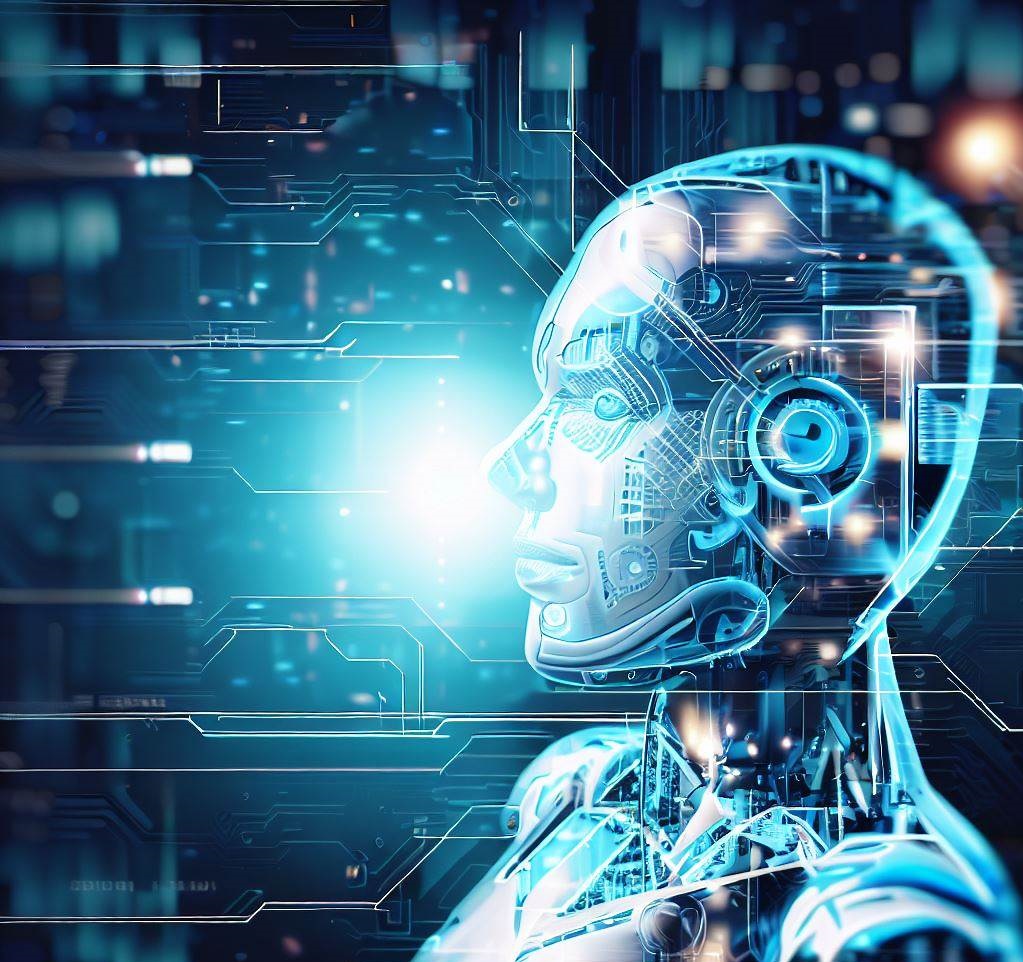Artificial Intelligence (AI) has rapidly evolved from a futuristic concept to a powerful force driving transformative changes across various sectors. This article explores the significant impact of AI on healthcare, finance, manufacturing, and other key industries, highlighting the innovative applications and benefits it brings to each sector.
AI in Healthcare

- Medical Diagnosis and Treatment: AI-powered algorithms are enhancing the accuracy of medical diagnoses by analyzing vast datasets of patient records and medical literature. Additionally, AI is aiding in treatment recommendations, optimizing drug discovery, and personalizing patient care.
- Telemedicine and Remote Monitoring: The pandemic accelerated the adoption of telemedicine, and AI is making virtual healthcare more effective. AI-driven tools enable remote monitoring of patients, providing real-time data to healthcare providers for timely interventions.
- Drug Development: AI is revolutionizing drug development by streamlining the research and development process. Machine learning models can predict potential drug candidates and their effectiveness, significantly reducing the time and cost of bringing new drugs to market.
AI in Finance

- Algorithmic Trading: Financial institutions are leveraging AI to execute high-frequency trades and make investment decisions. Machine learning algorithms analyze market data to identify trading opportunities and manage risk more effectively.
- Fraud Detection: AI algorithms are instrumental in detecting fraudulent activities within the financial sector. They analyze transaction patterns and flag suspicious behavior in real-time, protecting both businesses and consumers.
- Customer Service and Chatbots: AI-powered chatbots are providing efficient customer service by answering queries, processing transactions, and even offering personalized financial advice. This improves the overall customer experience.
AI in Manufacturing

- Predictive Maintenance: AI-driven predictive maintenance helps manufacturers identify equipment issues before they lead to costly breakdowns. Sensors and data analytics predict when machines need servicing, reducing downtime and maintenance costs.
- Quality Control: Machine learning models analyze product quality in real-time, detecting defects and ensuring consistent quality throughout the manufacturing process. This leads to higher product reliability and customer satisfaction.
- Supply Chain Optimization: AI optimizes supply chain operations by predicting demand, managing inventory levels, and optimizing transportation routes. Manufacturers can reduce costs and enhance efficiency.
AI in Other Sectors

- Retail: AI enhances customer experiences through personalized recommendations, inventory management, and cashier-less stores. It also helps retailers optimize pricing and reduce losses from theft.
- Education: AI-powered tools assist educators in creating personalized learning experiences for students. They can analyze student performance data and provide tailored resources and feedback.
- Energy: AI helps energy companies optimize power generation and distribution, improve energy efficiency, and enhance the reliability of renewable energy sources.
Conclusion
Artificial Intelligence is reshaping the landscape of various sectors, bringing efficiency, innovation, and improved outcomes. In healthcare, finance, manufacturing, and beyond, AI is not just a technological advancement but a driving force behind the evolution of these industries. As AI continues to advance, we can expect even more profound transformations in the way these sectors operate, ultimately benefiting businesses, consumers, and society as a whole.
